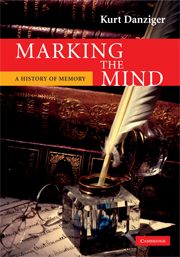7 - Truth in memory
Published online by Cambridge University Press: 05 June 2012
Summary
So far from being inherently linked, questions of testimony and questions of memory arose in different institutional and discursive contexts. In the context of judicial institutions and jurisprudence the value of testimony was seen to depend on the trustworthiness of witnesses as persons who were defined by their social relations. The trustworthiness of persons involved in legal proceedings depended on factors that were public and social, such as self-interest, age, gender, relationship to other persons involved in the proceedings and, not least, social standing. Memory remained a largely taken-for-granted aspect of legally implicated persons. The reliability of testimony was tested in recognized court procedures, but until relatively modern times this remained an overt, public matter that did not involve much questioning of what was going on inside people's minds. There might be passing remarks about the unreliability or the special trustworthiness of this or that individual's memory, but there was no systematic attempt to address the issue in this context.
The ancient discourse on memory arose mainly in the context of dialectical argument (see chapter 2) and in the context of rhetoric (see chapter 3). Only in the former case was it linked to questions of truth; and then not necessarily truth in the sense of factual accuracy. Rhetoric was a matter of persuasion, not of truth. In striking contrast to this situation, an important thread in the twentieth-century history of memory involves issues of testimony.
- Type
- Chapter
- Information
- Marking the MindA History of Memory, pp. 188 - 221Publisher: Cambridge University PressPrint publication year: 2008

